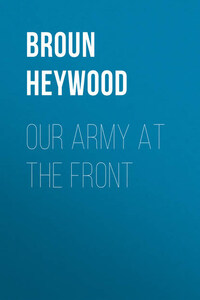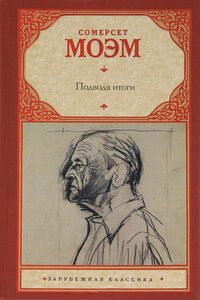CHAPTER I
THE LANDING OF PERSHING
A SHIP warped into an English port. Along her decks were lines of soldiers, of high and low degree, all in khaki. From the shore end of her gang-plank other lines of soldiers spread out like fan-sticks, some in khaki, some in the two blues of land and sea fighters. Decorating the fan-sticks were the scarlet and gold of staff-officers, the blue and gold of naval officers, the yellow and gold of land officers, and the black of a few distinguished civilians.
At the end of one shore-line of khaki one rigid private stood out from the rest, holding for dear life to a massive white goat. The goat was the most celebrated mascot in the British Army, and this was an affair of priceless consequence, but that was no sign the goat intended to behave himself, and the private was responsible.
Weaving through this picture of military precision, three little groups of men waited restlessly to get aboard the ship. One was the lord mayor of the port city, his gilt chains of office blazing in the forenoon brightness, with his staff; another was the half-dozen or so of distinguished statesmen, diplomats, and military heroes bringing formal welcome to England; the third was the war correspondents and reporters from the London newspapers.
The waiting was too keen and anxious for talk. Excitement raced from man to man.
For the ship was the Baltic. The time was the morning of June 8, 1917. The event was the landing of John J. Pershing, commander of America's Expeditionary Force. And the soldiers with him were the herald of America's coming – the holding of her drive with an outpost.
When the grandchildren of those soldiers learn that date in their history lessons it is safe to assume that all its historical significance will be fairly worked out and articulate.
It is equally safe to say that in the moment of its happening few if any of its participants, even the most consequential and far-seeing, had a personal sense of making history. Of all the pies that one may not both eat and have, the foremost is that very taking part in a great occasion. All the fun of it is being got by the man who stays at home and reads the newspapers, undistracted by the press of practical matters in hand.
True, for the landing of General Pershing there was the color of soldiery, the blare of brass bands, the ring of great names among the welcomers. There was, of course, the overtone picture of a great chieftain, marching in advance of a great army, come to foreign lands to add their might to what, with their coming, was then a world in arms. The future might see, blended with the gray hulk of the Baltic, the shadowy shape of the Mayflower coming back, still carrying men bound to the service of world freedom.
But what they saw that morning was, after all, a very modern landing, from a very modern ship, with sailors hastily tying down a gang-plank, and doing it very well because they had done it just that way so many times before.
The Royal Welsh Fusiliers were down to give a military welcome, with their mascot and their crack band. The lord mayor, Lieutenant-General Pitcairn Campbell, Admiral Stileman, and other men from both arms of England's service were there, not to feel of their feelings, but to make the landing as agreeable and convenient as possible, and to convey to General Pershing, with Anglo-Saxon mannerliness and reticence, their great pleasure at having him come.
As soon as there was access to the ship General Campbell and Admiral Stileman went aboard and introduced themselves to General Pershing. They met, also, a few of the American staff-officers, and returned salutes from the privates who made up the Pershing entourage of 168 men.
There were congratulations on the ship's safe arrival, which reminded General Pershing and some of his officers that they wanted, before leaving the ship, to pay their respects to the skipper who had carried them through the danger zone without so much as a sniff at a submarine.
This done, the little company of officers walked down the gang-plank, talking cheerily of their satisfaction at meeting, of their hard work on the ship, of the weather, and what-not, all the while the soldiers on the decks behind them waved hands and handkerchiefs in a general overflow of well-being, and finally – set foot in England!
One may not go too far in describing the contents of a general's mind without some help from him, but it's a fair guess that if General Pershing is as kin to his kind as he seems to be, the very precise moment of this setting foot in England escaped his notice altogether, and was left free for the historian to embroider how he pleased. For General Pershing was in the act of being led to the salute of a guard of honor by General Campbell. And almost immediately after that precise moment the Welsh Fusiliers' band began the "Star-Spangled Banner," and again it's a good bet that General Pershing and his staff thought not a thing about England and a lot about home.
But so the historic moment came, and so it went. And presently the American vanguard was finding its places in the special train to London.










